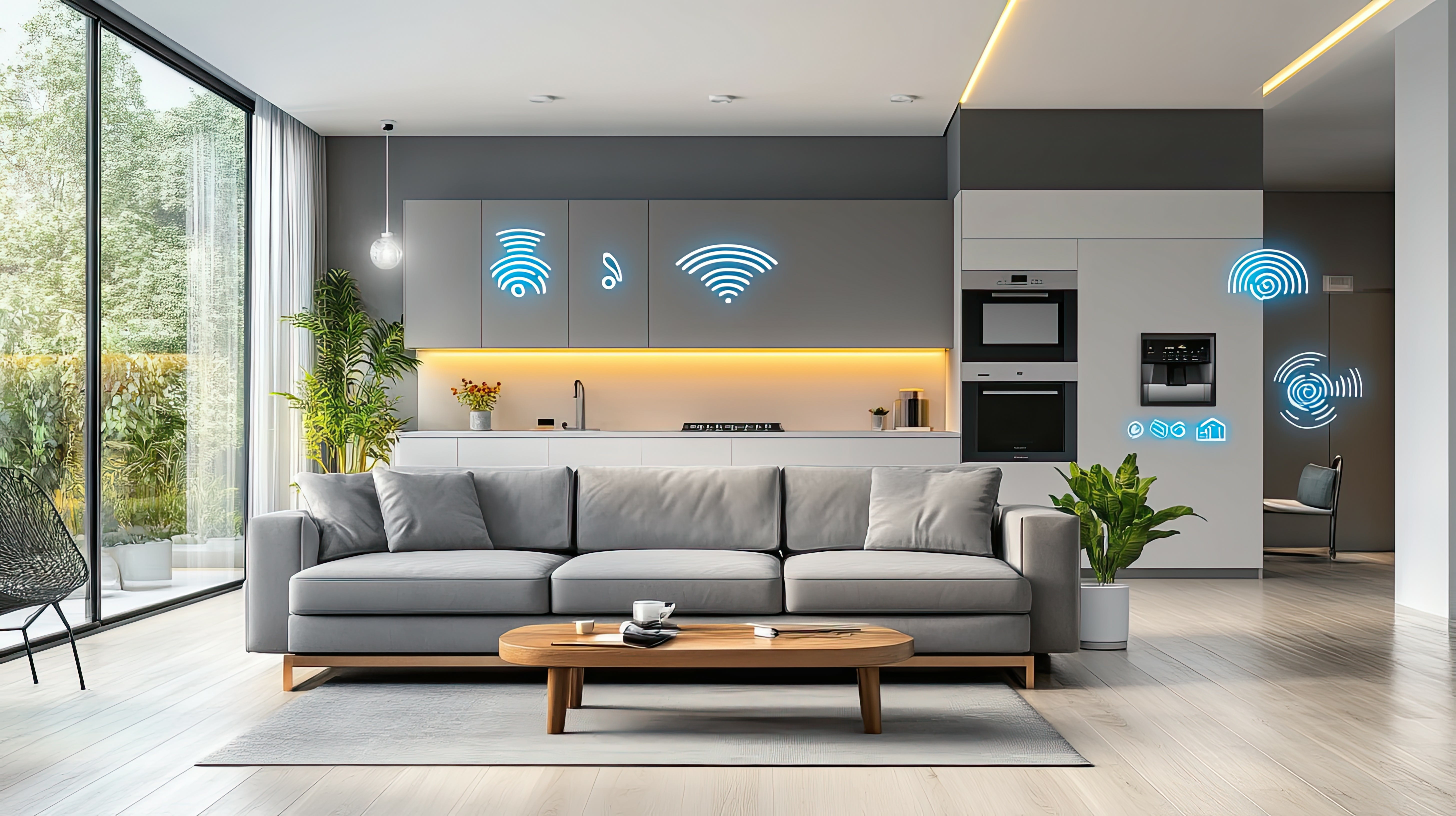Following a visit to Beijing, Hangzhou, and Shanghai to meet with key smart home companies in China, Jack Narcotta, Omdia’s Principal Analyst for the consumer smart home market provides an inside look into the current landscape of China’s smart home market and how major vendors are positioning themselves for the future.
Omdia’s latest estimates indicate that China is set to represent 20% to 30% of global smart home device shipments, positioning it to become the largest market by unit shipment by 2028 — or potentially even earlier. Unlike in the US and Europe, China’s smart home market is driven by government-backed service providers as the main channels for smart home sales, creating unique challenges for market analysts seeking a comprehensive view of the market.
Opportunities for overseas companies and future development of Chinese companies
Chinese consumers are increasingly drawn to premium smart home devices, particularly those featuring advanced capabilities and superior design, such as cameras, doorbells, and locks. While domestic voice assistants like Tmall Genie and Xiaodu dominate the market opportunities remain for international brands, especially those known for innovation.
Additionally, aging populations in many countries, like China, Japan, and several countries in Europe, and a heightened focus on health and energy efficiency are fueling demand for specialized devices including health monitors and energy-saving products.
Partnering with local ecosystems like Xiaomi, Huawei and Tuya Smart, and integrating with platforms like Mi Home, can help expand market reach. Furthermore, the rise of Matter facilitates compatibility across smart home device ecosystems, while China’s government investments in smart cities and collaborations with real estate developers open up B2B opportunities in new residential projects.
For Chinese companies, there are strengths from international brands that Chinese companies can draw on to enhance their brand competitiveness:
- enhanced focus on data privacy and security
- interoperability and cross-platform integration
- premium device and service offerings
- innovative use cases and home automation
China’s smart home market drivers
With a growing middle class and higher disposable incomes, China’s tech-savvy consumers are increasingly embracing app-based control of smart home devices, creating significant opportunities in the smart home market beyond sales of devices. Vendors in China have strong expertise in designing and producing smart home technologies, seamlessly integrating them with super apps like WeChat and Alipay.
Additionally, Chinese companies are at the forefront of integrating AI into smart home ecosystems and devices, with tech giants like Alibaba (Tmall Genie), Xiaomi (Mi Home) and Baidu (DuerOS) dominating connected ecosystems. AI-based security features are a key driver, and Xiaomi leads in affordable smart home solutions, offering an extensive range of products - from cameras to kitchen appliances - all integrated into the Mi Home platform. Government support for 5G and IoT infrastructure is further accelerating the development of China’s smart home sector.
Smart home market comparisons: China versus US, UK and Europe
China vs. US
Chinese consumers often prefer cost-effective smart home products, and many affordable options are widely available and typically manage their devices through multi-functional apps. In contrast, the US market is led by global giants such as Amazon (Alexa), Google (Google Home) and Apple (HomeKit) which prioritize premium smart home products - typically without integration into social media or mobile payment apps.China versus UK and Europe
In China, smart home products are highly localized, with consumers eager to install a wide range of smart devices that offer varied services from security to convenience. Adoption rates are high in the region. In contrast, in the UK and Europe, smart home products generally adhere to standardized, international designs. Strict data privacy regulations such as GDPR emphasize consumer rights and limit how companies collect and process personal data. As a result, European consumers adopt smart devices more cautiously, often prioritizing energy-efficient options like smart thermostats and lighting.China smart home company spotlight
Unlike in the US, the UK, and Europe, telecom providers in China - China Mobile, China Telecom, and China Unicom - play a central role in the smart home market. These companies offer bundled packages that combine mobile, broadband and smart home services, positioning themselves as the default infrastructure providers for smart home device connectivity and ecosystems.As of September 2024, China Mobile reports that its Home app has over 360 million subscriptions, with 35 million active monthly users and 480 million connected devices, offering services like home security and elderly care. China Telecom, leveraging its 5G and broadband infrastructure, operates a cloud-based platform for managing smart home devices and claims to have the largest consumer IoT network globally. Meanwhile, China Unicom focuses on 5G and IoT solutions, with its Smart Home Network emphasizing energy efficiency, security, and automation.
Matter and China
Matter is an open smart home standard with a goal to ensure devices from different brands work together, reducing fragmentation. Supported by companies such as Amazon, Apple, Google, Huawei, Leedarson, LG, OPPO, Samsung, and Tuya Smart , it enables cross-platform compatibility while focusing on security, stability, and ease of use.Omdia believes the adoption of Matter in China will be gradual, initially driven by global players like Xiaomi, Tuya and Aqara, who require Matter compatibility to serve their international customers. As more local manufacturers recognize the benefits of reducing fragmentation, adoption of smart home devices and services will increase. The global standardization of Matter will push Chinese companies to follow suit to remain competitive in international markets. China’s role as a manufacturing hub for smart home devices positions it to benefit from Matter’s global standardization.
Additionally, China’s leadership in 5G and IoT will spur further innovation, particularly in areas like smart energy management, home security, and automation. Nonetheless, there are still certain challenges for Matter in China, including regulations on data privacy and cross-border data flows, as well as the need to educate smart home consumers and smart home market participants.
About Omdia’s Smart Home Intelligence Service
Omdia’s smart home research and advisory services utilize in-depth supply chain insights to deliver industry-leading shipment data, competitive intelligence, and market insights and analysis for decision makers and line of business leaders at smart home device vendors, service providers, components manufacturers, and platform and app developers. Our proprietary six-point methodology, combined with OEM and ODM shipment data and retail pricing from a variety of sales channels equips clients with high-confidence data and market assessments to refine global strategies, ensure market sizing accuracy, and identify growth opportunities and improvement areas.More from author
More insights
Assess the marketplace with our extensive insights collection.
More insightsHear from analysts
When you partner with Omdia, you gain access to our highly rated Ask An Analyst service.
Hear from analystsOmdia Newsroom
Read the latest press releases from Omdia.
Omdia NewsroomSolutions
Leverage unique access to market leading analysts and profit from their deep industry expertise.
Solutions




